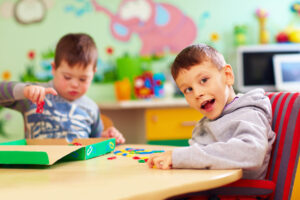Poor fine and gross motor skills refer to difficulties in controlling movements and actions that involve larger muscles (gross motor skills) and smaller muscles (fine motor skills). These skills are important for everyday tasks such as writing, tying shoelaces, using utensils, and playing sports.
Symptoms of poor fine and gross motor skills
Symptoms of poor fine and gross motor skills may include:
- Difficulty with tasks that require hand-eye coordination
- Trouble with balance and coordination
- Clumsiness
- Difficulty with writing or holding a pencil
- Difficulty with buttoning clothes, zipping zippers, or tying shoelaces
- Difficulty with using utensils or scissors
- Difficulty with sports or physical activities
Diagnosing poor and fine and gross motor skills
A diagnosis of poor fine and gross motor skills is typically made by a healthcare professional, such as a paediatrician or occupational therapist, through a series of assessments and evaluations. These assessments may include testing of coordination, balance, strength, and dexterity.
Treatment of poor fine and gross motor skills
Treatment for poor fine and gross motor skills may include occupational therapy, physical therapy, or both. Occupational therapy can help children develop and improve fine motor skills, while physical therapy can help with gross motor skills. Therapy may involve exercises, activities, and games that help to build strength, coordination, and dexterity.
Help and support for those with poor fine and gross motor skills
There are various forms of help and support available for individuals with poor fine and gross motor skills. This includes:
- Early intervention services for children
- Special education services in schools
- Adaptive equipment and technology
- Support groups for parents and caregivers
- Therapy services through public or private clinics
It is important to seek help if you or a loved one is struggling with poor fine and gross motor skills. With appropriate treatment and support, individuals with these challenges can improve their motor skills and achieve greater independence in daily life.

